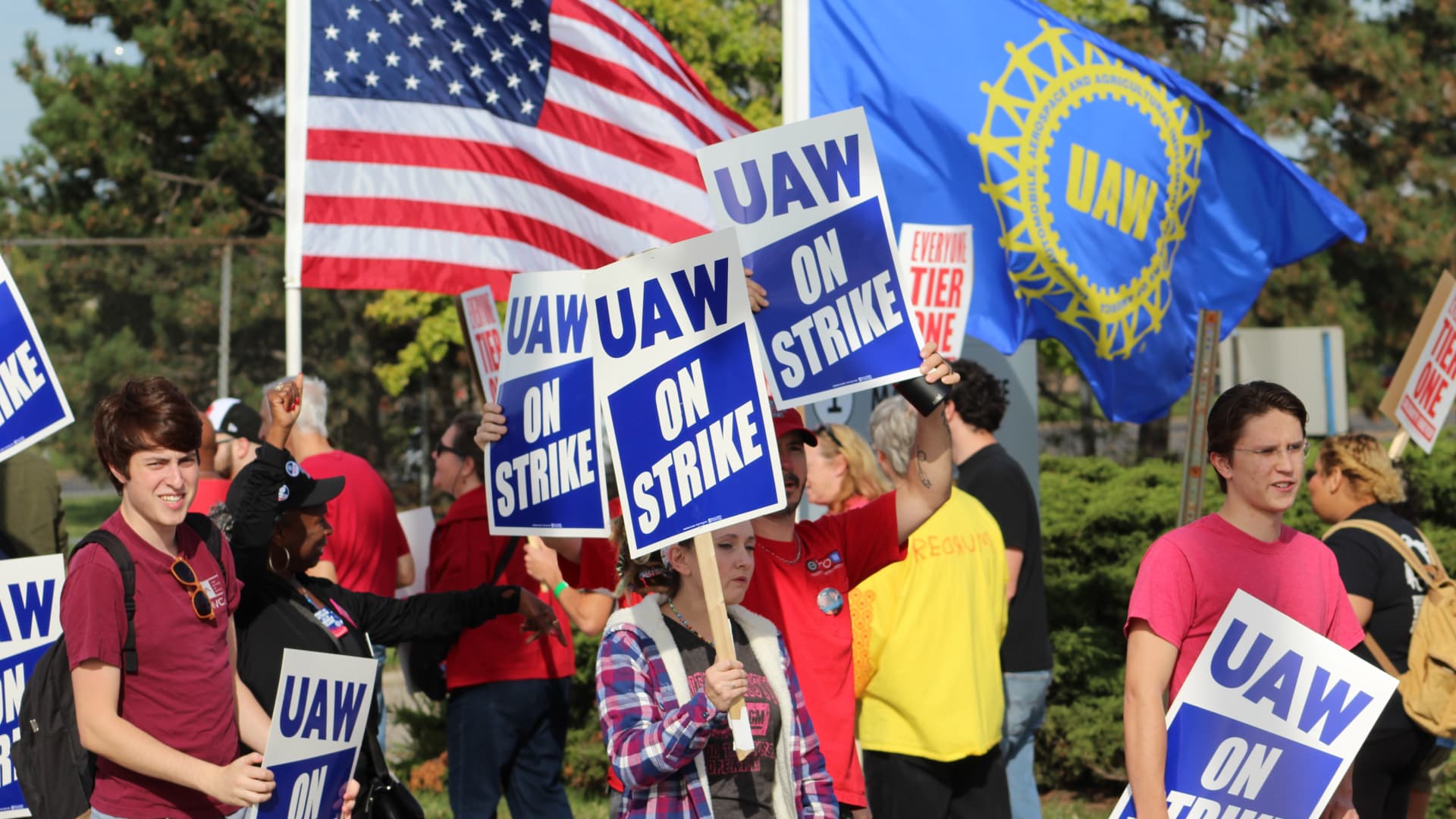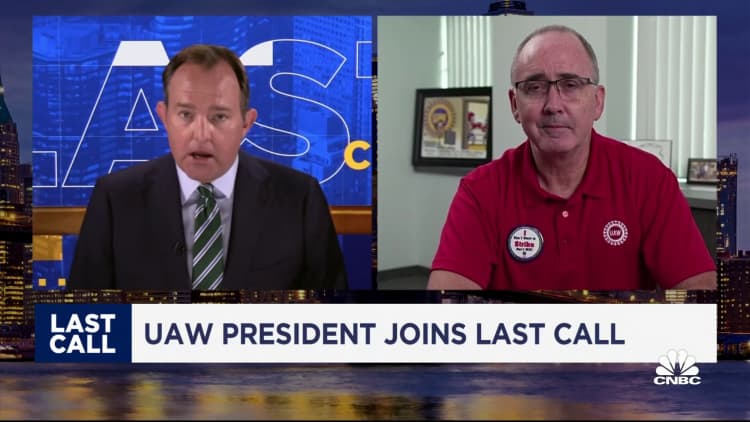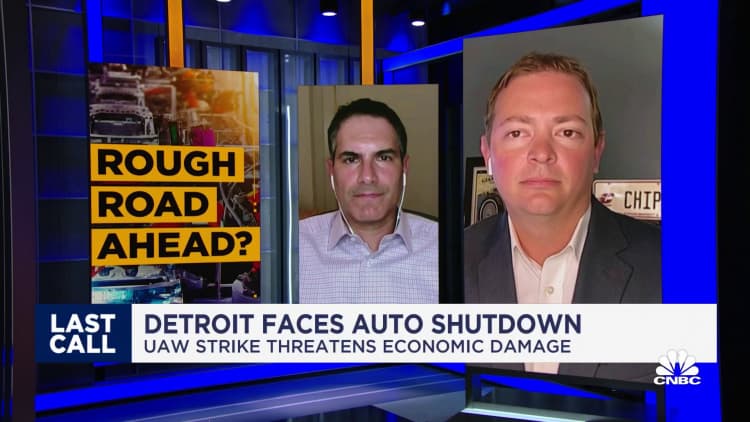
United Auto Workers members on strike picket outside General Motors’ Detroit-Hamtramck Assembly plant in Detroit, Sept. 25, 2019.
Michael Wayland / CNBC
DETROIT – Many on Wall Street view potential strikes by United Auto Workers against the Detroit automakers as largely manageable – even seeing investment opportunities.
Some believe potential strikes are already factored into the stocks, while others estimate General Motors, Ford Motor and Stellantis, collectively known as the Detroit automakers, or D-3, can handle such work stoppages and expected labor cost increases. The companies and the union are bargaining contracts for 146,000 union members ahead of an 11:59 p.m. ET Thursday deadline.
“Our theoretical math suggests that labor cost increases should largely be manageable for the D-3. Further, a work stoppage should keep inventories low and support prices staying elevated, which should be a near term offset for higher wages,” RBC Capital Markets analyst Tom Narayan said Thursday in an investor note.
Using Ford, which has the most UAW employees at 57,000, as an example, RBC estimated margin impacts for 10% and 20% raises for union workers would be 0.39% and 0.79%, respectively. That doesn’t factor in potential bonuses and other possible changes such as cost-of-living-adjustments, which the union has made a priority.

What “matters most” is the duration of a potential strike, Jefferies analyst Philippe Houchois said. In an investor note Monday, he estimates each week of a strike could account for 4% to 5% of adjusted earnings at Ford; 3% to 4% at GM; and 1.5% to 2% at Stellantis.
Simultaneous national strikes against the Detroit automakers, which the UAW has alluded to doing, would be unprecedented. It could have a ripple effect on the automotive supply chain, U.S. economy and domestic manufacturing. It also would likely tally into billions in losses for the companies in production, sales and other earnings.
A strike against GM in 2019 during the last round of contract negotiations lasted 40 days and cost the automaker $3.6 billion in earnings that year, the company reported at the time.
Morgan Stanley analyst Adam Jonas has continued to say the firm is largely a buyer “across much of our sector leading up to and during contract negotiations.” He estimates labor costs only account for around 4% of the global revenues for the Detroit automakers.
“Bottom line, we’d be a buyer of both F and GM right now and during the negotiations as we believe even a ‘difficult’ outcome can catalyze far bigger changes to strategy and capital discipline that will eventually yield significant and longer lasting benefits to shareholders that will exceed today’s labor headlines,” Jonas said in an Aug. 28 note.

Jonas also said Monday that a strike may be positive for used car prices and relatively good for dealers and rental car companies such as Avis Budget Group and Hertz.
A UAW strike could “drive some headline-related downwards movement to the stocks, but the stocks largely reflect the risks of a material strike,” BofA Securities analyst John Murphy said Friday.
The union’s demands also could be costly if tentative deals are reached. Key demands have included a 40% hourly pay increase, a reduced 32-hour work week, a shift back to traditional pensions, elimination of compensation tiers and restoration of cost-of-living adjustments, among other items on the table.
– CNBC’s Michael Bloom contributed to this report.







